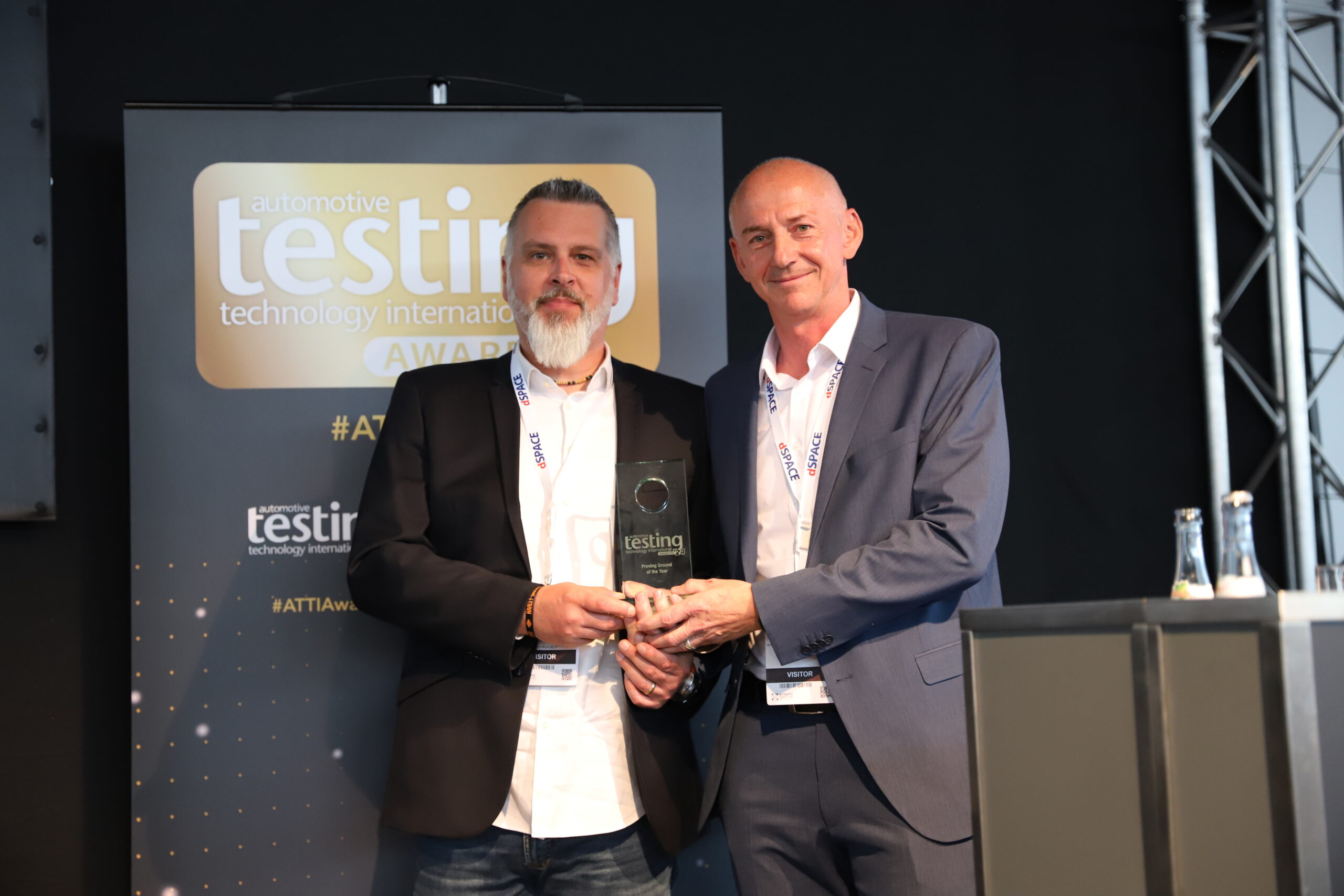Please tell us a little about your roles at BMW.
Heb: My background is in automotive engineering and R&D. I head up BMW’s six global proving grounds, and I lead the Future Mobility Development Center project.
Rychly: I too have an engineering background. My former job was in durability testing. My main role is to manage safety as well as the operations side of things. As part of this, I keep in touch with the other proving grounds to exchange knowledge on what we can improve and do differently. We are also part of the European Proving Grounds Safety Association. It’s a new project for the Czech Republic so it was hard to find people with relevant experience.
What portion of testing does AV analysis account for at BMW?
Heb: It’s not easy to say. It’s increasing, especially as we go from L2 to L3 autonomy. Sokolov is dedicated to this kind of testing.
What’s one of the most important resources at the proving ground?
Rychly: We use dynamic soft targets including cars and pedestrians as well as bicycles and motorcycles, and we also have an elk target that is very important. When testing, the hit point must be the same every time, but this is difficult for the driver to achieve. As such, the platforms are integrated with differential GPS and connected to the car. All the driver needs to do is drive and the platform positions itself in front of the vehicle to ensure it meets the hit point.
How many vehicles might be on track at any one time?
Heb: This depends on the test and the parameters. We can say that we have up to 100 users a day, but not necessarily on track at the same time. It is important that the tests do not conflict and some cannot be done simultaneously.
What are the facility’s opening hours?
Rychly: Operations run Monday to Friday: Mon, 12:00pm-8:00pm; Tues-Thurs, 12 hours a day from 8:00am to 8:00pm; Fri, 08:00am-4:00pm. We can also open the proving ground on a Saturday. We are currently obtaining permission to do noise testing at night without influence from external noise. This process is progressing well.
Are you doing any swarm testing?
Heb: Yes – we have done this on the Automated Driving Highway with various cars, and in traffic jam situations.

What’s one of the tests you’ve conducted in Sokolov that you’re most proud of?
Rychly: Testing of BMW Personal Pilot (L3). Test team members said that when they didn’t have access to the proving ground, this was really difficult to homologate. We’ve also done the Autobahnassistent (L2).
What are the most important maintenance practices for ensuring the reliability of results?
Rychly: It’s important to keep the tracks clean because the test platforms don’t have much clearance over the surface, so it needs to be clear of parts, which could influence a test.
Heb: Grip levels must also be maintained across a surface to ensure repeatability of a test. As a matter of fact, we have to provide perfect test conditions – day by day.
What made the Future Mobility Development Center project so special?
Heb: This was a once in a lifetime project. Working with a team from the Czech Republic, Germany, Austria, France and other parts of Europe, and through hard times during coronavirus, which had a big impact on people and pricing – it was huge. But we were on schedule and on budget and this is truly amazing. It was an outstanding performance from the team.
ATTI spoke to Richly and Heb following the awards ceremony at Automotive Testing Expo Europe 2024.


